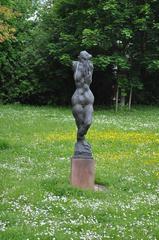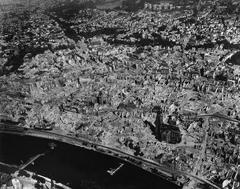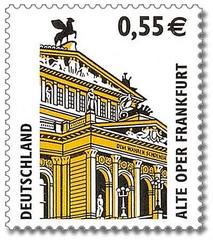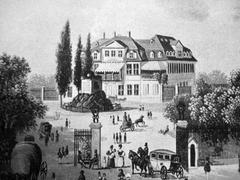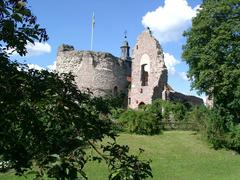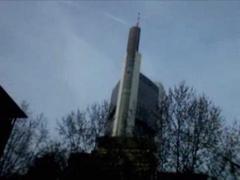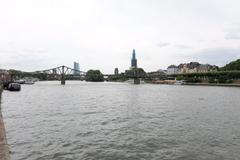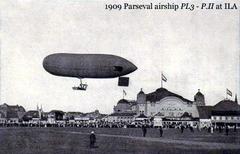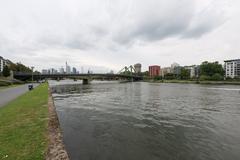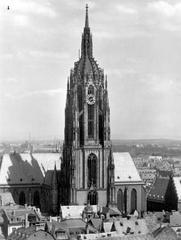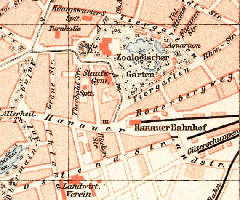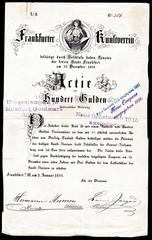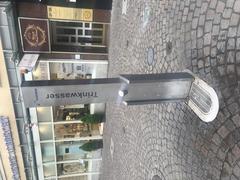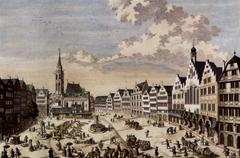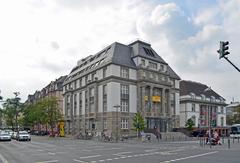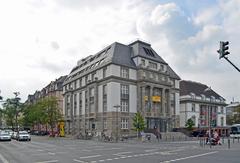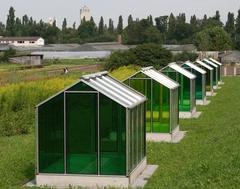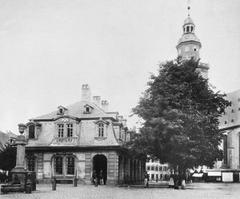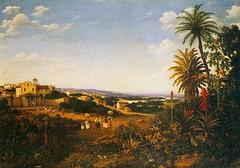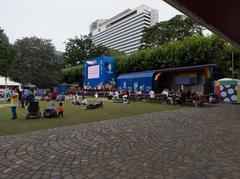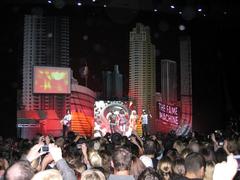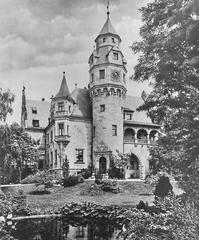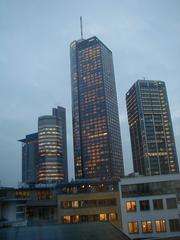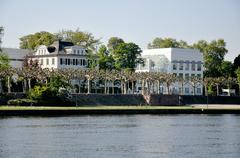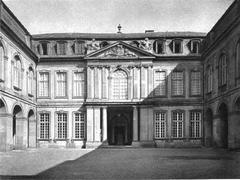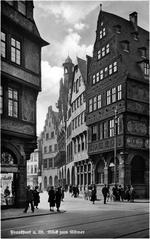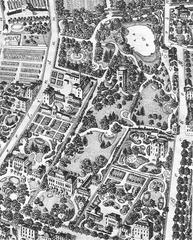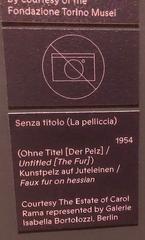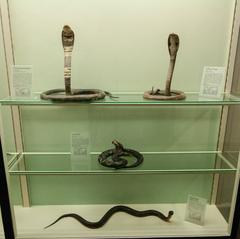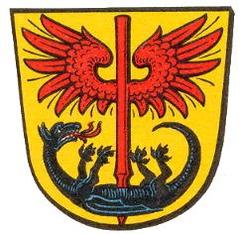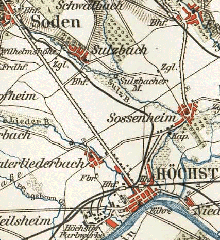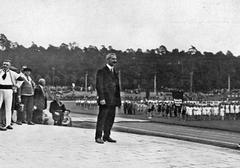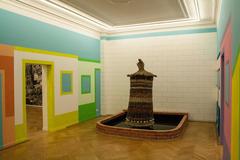Frankfurter Engel Visiting Hours, Tickets, and Comprehensive Guide to Frankfurt’s LGBTQ+ Memorial
Date: 04/07/2025
Introduction
The Frankfurter Engel (“Frankfurt Angel”) is a landmark memorial in Frankfurt am Main, Germany, dedicated to commemorating the persecution of homosexual men and women under Nazi rule and the enduring legacy of discrimination that followed, notably under Paragraph 175 of the German Criminal Code. Unveiled in 1994, it stands at the intersection of Schäfergasse and Alte Gasse (Klaus-Mann-Platz), an area historically significant for the LGBTQ+ community. As Germany’s first public monument of its kind, the Frankfurter Engel is a site of remembrance, education, and ongoing advocacy for LGBTQ+ rights.
This guide provides a detailed overview of the memorial’s origins, historical context, artistic symbolism, visitor information (including hours, tickets, and accessibility), nearby attractions, guided tours, and recommendations to enrich your visit. Whether you are a history enthusiast, a member of the LGBTQ+ community, or a traveler seeking deeper cultural experiences, the Frankfurter Engel offers a profound connection to both the past and present. For further details, consult official tourism resources such as Visit Frankfurt and Wikipedia.
Table of Contents
- Origins and Historical Context
- Artistic Design and Symbolism
- Cultural and Social Significance
- Visitor Information
- Location and Nearby Attractions
- Guided Tours and Special Events
- Visitor Tips and Etiquette
- Photography and Media Recommendations
- Frequently Asked Questions (FAQ)
- Conclusion & Call to Action
- References
Origins and Historical Context
The Frankfurter Engel was realized through the efforts of activists and organizations determined to address the absence of public acknowledgment for LGBTQ+ persecution in Germany. In 1990, the Initiative Mahnmal Homosexuellenverfolgung was founded, advocating for a memorial to honor the victims of both Nazi-era and postwar legal discrimination (Frankfurt Live).
A design competition in 1992 led to the selection of Rosemarie Trockel’s concept—a stylized bronze angel with open wings—completed and unveiled on December 11, 1994 (Visit Frankfurt). Its placement at Klaus-Mann-Platz, in the heart of Frankfurt’s LGBTQ+ district, underscores the memorial’s role as both a site of mourning and a beacon of resilience.
The memorial specifically recognizes the intensification of Paragraph 175 under Nazi rule. Between 1933 and 1945, approximately 100,000 men were arrested for homosexuality, with an estimated 50,000 convicted. Many were sent to concentration camps, forced to wear the pink triangle, and suffered unimaginable abuses. Postwar, survivors were often denied recognition and continued to face legal and social discrimination (Wikipedia, GoMag, Pride in London).
Artistic Design and Symbolism
Rosemarie Trockel’s Frankfurter Engel features an abstract bronze angel, its open wings symbolizing both vulnerability and protection. The minimalist design, set atop a simple stone pedestal, invites reflection and personal interpretation.
A key inscription reads:
“Homosexual men and women were persecuted and murdered in Nazi Germany. The crimes were denied, the dead concealed, the survivors scorned and prosecuted. We remember this, in the awareness that men who love men and women who love women still face persecution. Frankfurt am Main. December 1994.”
(Pride in London)
The angel’s form references mourning and transcendence, while its contemporary abstraction resists closure, serving as an ongoing reminder of the necessity for vigilance and advocacy (gaytravelr.com).
Cultural and Social Significance
As Germany’s first memorial dedicated to LGBTQ+ victims of state persecution, the Frankfurter Engel marked a turning point in the nation’s public discourse. Its creation predated similar monuments in Berlin and Cologne, inspiring a broader movement for inclusive historical memory (GoMag).
The site is central to annual commemorations, including Holocaust Remembrance Day (January 27) and Christopher Street Day (Frankfurt’s Pride, in July), and serves as a venue for community events, activism, and education. Its ongoing relevance is underscored by the explicit acknowledgment that “men who love men and women who love women still face persecution,” a reminder that the struggle for equality continues (Pride in London).
Visitor Information
Visiting Hours
The Frankfurter Engel is an outdoor public memorial, open and accessible 24 hours a day, seven days a week. There are no restrictions on visiting hours.
Tickets
No admission fee or ticket is required to visit the Frankfurter Engel. It is freely accessible to all.
Accessibility
The memorial is located at street level with paved access, suitable for wheelchair users and visitors with limited mobility. Public transport connections are excellent, with tram and bus stops nearby. The closest major station is Konstablerwache, a short walk from the site (gaytravelr.com, timeout.com).
Location and Nearby Attractions
Address: Klaus-Mann-Platz (intersection of Schäfergasse and Alte Gasse), Frankfurt am Main, Germany.
The memorial is centrally located, within easy walking distance of:
- Zeil Shopping Street: Frankfurt’s main shopping avenue
- Römerberg: Historic old town square
- St. Paul’s Church (Paulskirche): Symbol of German democracy
- Goethe House: Birthplace of Johann Wolfgang von Goethe
- Museumsufer: A cluster of museums along the River Main
- Jewish Museum, Städel Museum, and Museum of Modern Art: For extended cultural exploration
The surrounding neighborhood, known as Frankfurt’s “Bermuda Triangle,” is an LGBTQ+ hub with welcoming cafes, bars, and venues.
Guided Tours and Special Events
Numerous local tour operators and LGBTQ+ associations offer guided walking tours that include the Frankfurter Engel and other sites of historical significance. These tours provide deeper context on the persecution and resilience of the LGBTQ+ community in Frankfurt.
Annual events at the memorial include:
- Holocaust Remembrance Day (January 27)
- Christopher Street Day (CSD) in July
- May 27: Anniversary of the repeal of Paragraph 175
For up-to-date tour and event information, see Frankfurt Tourist Information.
Visitor Tips and Etiquette
- Respectful Conduct: The memorial is a site of remembrance; maintain a quiet and respectful demeanor.
- Photography: Permitted and encouraged, but be considerate during commemorative events.
- Best Time to Visit: The site is peaceful year-round, but visits during annual events offer additional meaning.
- Amenities: Numerous nearby cafes and accessible public restrooms.
Photography and Media Recommendations
High-quality images of the Frankfurter Engel—such as close-ups of the bronze angel, wide shots with surrounding greenery, or night-time illuminations—enhance both in-person and virtual engagement. Suggested image alt texts include: “Frankfurter Engel bronze sculpture at night illuminated with surrounding greenery” and “Frankfurter Engel monument in Frankfurt city center.”
Virtual tours and maps are available on Frankfurt Tourism.
Frequently Asked Questions (FAQ)
Q: What are the Frankfurter Engel visiting hours?
A: The memorial is outdoors and accessible 24/7.
Q: Is there an entrance fee or ticket required?
A: No; the memorial is free to visit.
Q: How do I reach the Frankfurter Engel by public transport?
A: The nearest major station is Konstablerwache, served by U-Bahn, S-Bahn, and tram lines.
Q: Is the memorial wheelchair accessible?
A: Yes; the site is on a flat, paved surface.
Q: Are guided tours available?
A: Yes; local organizations offer LGBTQ+ and historical walking tours that include the memorial.
Q: What other attractions are nearby?
A: Zeil shopping street, Römerberg, St. Paul’s Church, Goethe House, and Museumsufer are all within walking distance.
Conclusion & Call to Action
The Frankfurter Engel is a powerful and enduring symbol of remembrance, resilience, and the ongoing fight for LGBTQ+ rights. Its central location, compelling history, and unique artistic expression make it an essential stop for anyone seeking to understand Frankfurt’s diverse heritage.
Plan your visit today to honor the victims of persecution, support the cause of equality, and engage with a living memorial that continues to inspire education and activism. For detailed visitor updates, walking tour schedules, and related cultural explorations, consult the Frankfurt Tourism website, download the Audiala app for guided audio tours, and follow us on social media for the latest updates.
References
- Frankfurter Engel – Wikipedia
- Frankfurt Live – Der Verein hinter dem Mahnmal Frankfurter Engel verabschiedet sich
- Visit Frankfurt – Frankfurter Engel
- GayTravelr.com – Frankfurter Engel Memorial
- GoMag – 10 Monuments That Honor the LGBTQ Lives Lost in the Holocaust
- Pride in London – Behind the Pink Triangle: Remembering the Nazis’ LGBTQ Victims
- Nomadic Matt – Germany Travel Tips: Frankfurt
- Timeout.com – Frankfurt Travel Tips
